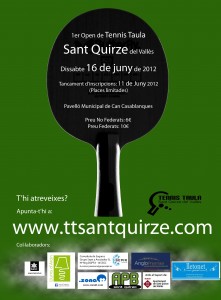En agosto de 2010 envié una factura de 237,12€ más IVA para un trabajo de corrección que hice para la Universidad de Sevilla, y concretamente el Departamento de Nutrición y Bromatología. A día de hoy, 31 de mayo de 2012, sigo sin cobrar la factura. Al principio se ponían excusas. Me pedían documentación y datos que no pide ningún otro cliente, y que no tienen ni la necesidad ni el derecho a saber, como mi número de pasaporte.
Incluso me pidieron una dirección en mi país de origen. Les dije que yo no tenía ninguna dirección en el Reino Unido puesto que soy residente en Cataluña, y hace 10 años que no vivía en el Reino Unido. Además, como soy comunitario no me tendrían que pedir más datos de lo que piden a un cliente español. Basta con mi dirección y mi NIF. Pero no había manera, así que cedí y di mi número de pasaporte y la dirección de mis padres, para poner algo.
Seguía sin cobrar. Después me explicaron que no se me pagó en su momento porque el trabajo se hizo mal (aunque unos días después de la entrega me habían dicho que estaba bien) y tuvieron que pagar a otro corrector. Pero curiosamente el artículo está publicado en la revista Food Chemistry y había pocos cambios. Los únicos cambios que encontré eran de datos que solo puede saber el autor. ¡Incluso encontré un error tipográfico que estaba en la versión original que se me envió pero que yo había corregido en mi versión! A la persona que me dijo que el artículo estaba mal expliqué lo que había encontrado en Food Chemistry, pero no me contestó. Incluso dije que cobraría el gasto del segundo corrector si me pudiera demostrar lo que yo había hecho mal, y no me han enviado nada. Tampoco se disculparon de su falsa acusación.
En noviembre de 2011 (más de un año después de la factura) me pidieron volver a enviar documentación que ya había enviado el año anterior.
El 17 de enero envié un mensaje para decir que todavía no había cobrado. Nadie me contestó.
Volví a escribir el 26 de marzo. No me contestó hasta el 16 de abril (21 días más tarde), en cuya fecha me dijeron que la factura ya estaba grabada. Añadía que lo cobraré seguro, pero no sabía cuando (o sea, ¿podría cobrarla en el 2025?).
Hoy es 31 de mayo de 2012, y sigo sin cobrar. Me parece vergonzoso. Me gustaría saber lo que pasaría a un alumno que tardara casi dos años a pagar la matrícula. ¿La Universidad de Sevilla lo consideraría aceptable? ¿El alumno podría argumentar “no sé cuando lo pagaré pero lo pagaré seguro”? ¿El personal responsable de pagarme la factura aceptaría que la Universidad tardara casi dos años a pagar su propio sueldo?

